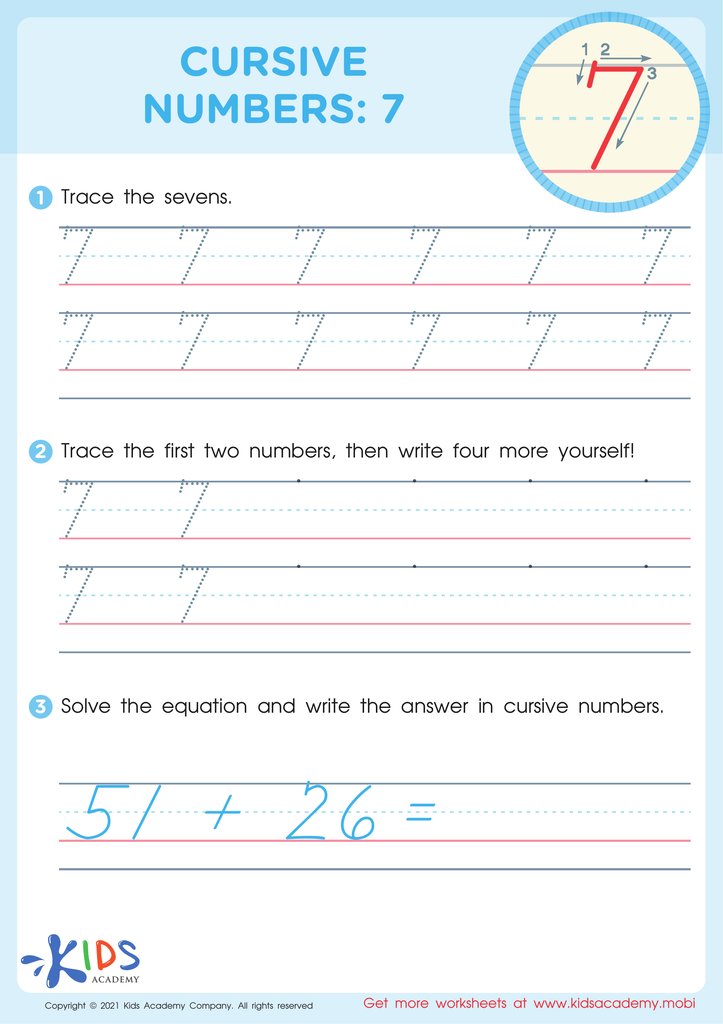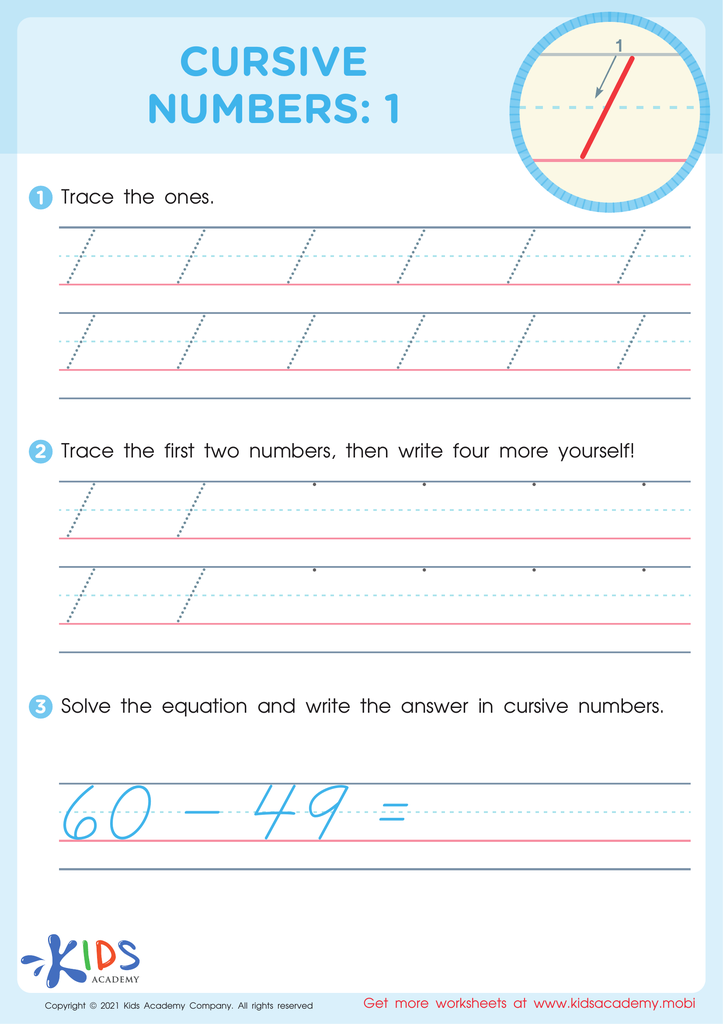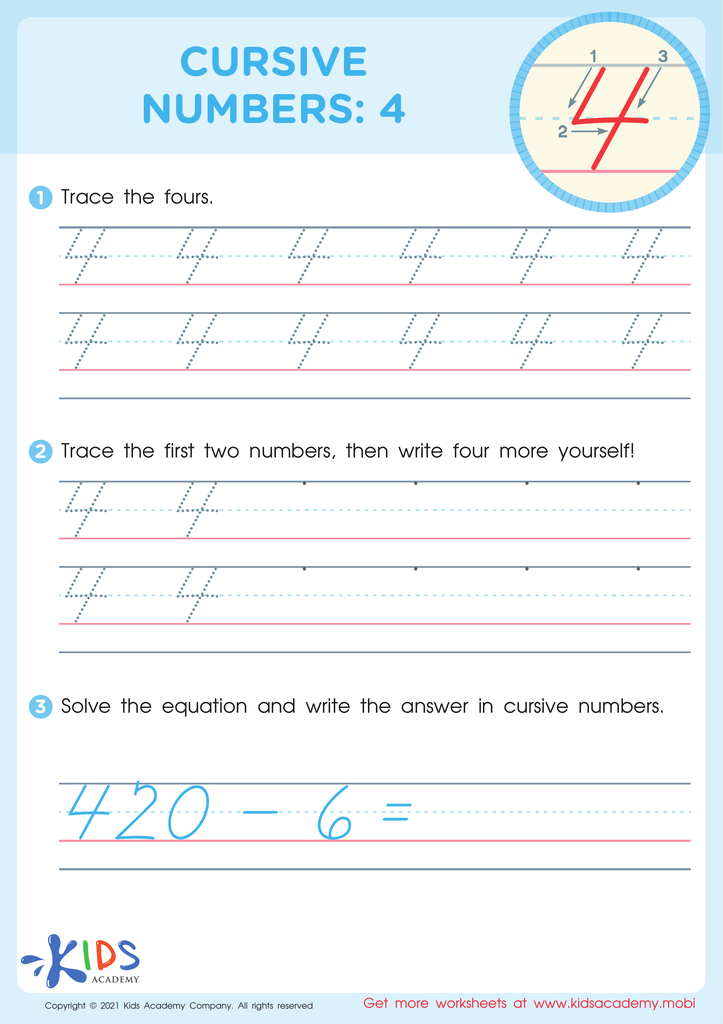Fine motor skills development Tracing Numbers Worksheets for Ages 4-9
3 filtered results
-
From - To
Unlock your child's potential with our "Fine Motor Skills Development Tracing Numbers Worksheets" designed for ages 4-9. These expertly crafted worksheets not only teach number recognition and counting but also focus on enhancing fine motor skills. By practicing tracing, children develop hand-eye coordination, pencil control, and attention to detail. Our delightful and engaging activities are perfect for young learners, providing the foundation they need for future academic success. Ideal for both classroom and home use, these worksheets make learning fun and effective. Boost your child's confidence and skills with our comprehensive tracing numbers worksheets today!


Cursive Numbers: 7 Worksheet


Cursive Numbers: 1 Worksheet


Cursive Numbers: 4 Worksheet
Parents and teachers should prioritize the development of fine motor skills, especially through activities such as tracing numbers, for children ages 4-9 because these skills are foundational for many essential tasks. Fine motor skills involve the coordination of small muscles, particularly in the hands and fingers, crucial for writing, cutting, buttoning, and other daily activities. Tracing numbers helps children enhance their hand-eye coordination, control, and dexterity, which are pivotal for academic success and overall independence.
Moreover, tracing numbers is deeply integrated with cognitive development. As children focus on forming numbers correctly, they also reinforce number recognition, sequencing, and spatial awareness, laying a strong foundation for math literacy and problem-solving skills. This practice bridges the gap between recognizing numbers and being able to write them independently, boosting confidence and readiness for more complex mathematical concepts in future grades.
Early development of fine motor skills also positively impacts children's ability to participate fully in classroom activities, reducing frustration and enhancing self-esteem. By ensuring children develop these skills through fun, structured activities like tracing numbers, parents and teachers provide them with the tools necessary not only for academic achievement but also for everyday tasks, fostering independence and life-long learning habits.















